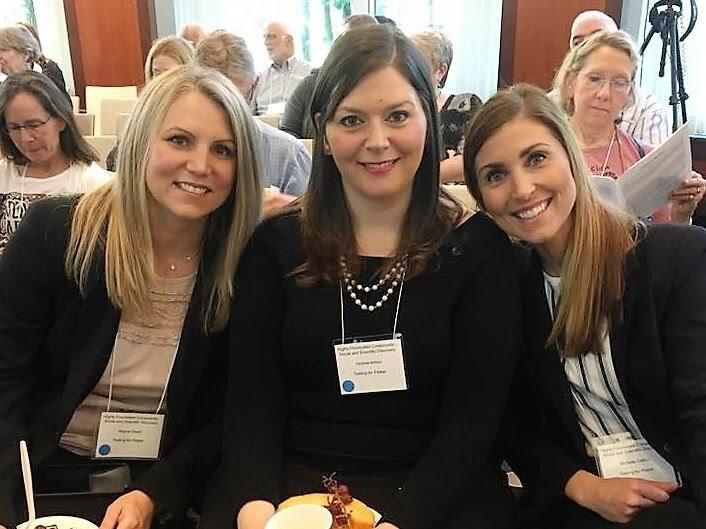We are a community action group organized to give the Pease community a voice. Our mission is to be a reliable resource for education and communication while advocating for a long-term health plan on behalf of those affected by the water contamination at the former Pease Air Force Base in Portsmouth, New Hampshire.
Have a question? Please reach out! We'd be more than happy to hear from you.
Founders:
Andrea Amico
Andrea Amico is a Portsmouth resident, wife, and mother of three children. Her husband worked for a business on the Pease Tradeport for almost 9 years and her two older children attended daycare at the Pease Tradeport starting at the young age of 12 weeks old. Her family has been directly exposed to contaminated drinking water while at Pease and she has worked tirelessly since learning of the contamination in May of 2014 to raise awareness, push for answers, and advocate for action for the Pease community. She has a Masters of Science in Occupational Therapy and has worked in the healthcare field for over 14 years. Her journey as a clean water advocate at Pease has presented her many opportunities to raise awareness at the national level. She attended the first National PFAS EPA Summit in May 2018, she testified at the first ever Senate hearing on PFAS in September 2018, she attended the President’s State of the Union address as US Senator Jeanne Shaheen’s guest in February in 2019, and she gave a TEDx talk titled “PFAS and a Mother’s Journey to Becoming A Clean Water Advocate “ in September 2019. started her advocacy work for Pease in May 2014 when she first learned of the Pease water contamination in the media and wanted to learn more about the exposure her family was facing.
Alayna Davis
Alayna Davis is a local seacoast resident whose family has been directly impacted by the Pease Water contamination. She returned to the seacoast after spending 4 years living in Virginia where she graduated from Roanoke College. She worked on the Pease Tradeport for 7 years, has one son who attended college on Pease Tradeport, and another that attended a daycare there full-time from 12 weeks to 5 ½ years old. Alayna has been actively interested in the impacts of environmental exposures for several years, so she was seriously concerned when she learned about the PFC contamination at the Pease Tradeport through the media. Working with the local community to get answers on this issue has been a priority for her ever since, and she is dedicated to advocating for an immediate and long term plan in bringing attention to this issue and learning more about how the contamination may impact her family, the local community at the Pease Tradeport, and anyone who may have been exposed to PFCs. Alayna has been selected as a member of the Pease Community Assistance Panel (CAP) run by ATSDR. The purpose of the CAP is to voice the concerns of the affected community and their families, and to provide input for health studies and research.
Michelle Dalton
Raised in the Boston metro area, Michelle Dalton has lived in New Hampshire for 12 years with her husband and their 3 children. Michelle became aware of the Pease water contamination through the media. After doing some research and connecting with others, she began to understand the seriousness of this issue and the potential impact to her family. Michelle was exposed to the contaminated water in January of 2011 when she started working on the base. Her youngest child, now 3, has attended daycare on Pease since he was 12 weeks old. However, he has been exposed to the contamination since conception. Michelle graduated from Northeastern University and immediately entered into the legal field where she worked for law firms in both MA and NH, including working as paralegal for Shaheen & Gordon, PA. She currently works on Pease for a non-profit organization as a Marketing Manager and is fully committed to advocating on behalf of the Pease community affected by the contamination. Michelle has been selected as a member of the Pease Community Assistance Panel (CAP) run by ATSDR. The purpose of the CAP is to voice the concerns of the affected community and their families, and to provide input for health studies and research.
Never doubt that a small group of thoughtful, committed citizens can change the world; indeed, it's the only thing that ever has.
— Margaret Mead, American cultural anthropologist
Advocating for the Pease community impacted by PFAS since 2014







